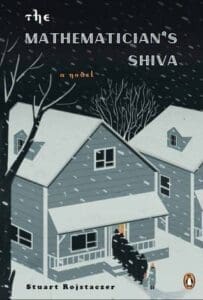The Pearl That Broke Its Shell by Nadia Hashimi – 450 pages
Book Blurb:
In Kabul, 2007, with a drug-addicted father and no brothers, Rahima and her sisters can only sporadically attend school, and can rarely leave the house. Their only hope lies in the ancient custom of bacha posh, which allows young Rahima to dress and be treated as a boy until she is of marriageable age. As a son, she can attend school, go to the market, and chaperone her older sisters. But Rahima is not the first in her family to adopt this unusual custom. A century earlier, her great-aunt, Shekiba, left orphaned by an epidemic, saved herself and built a new life the same way. Crisscrossing in time, The Pearl the Broke Its Shell interweaves the tales of these two women separated by a century who share similar destinies. But what will happen once Rahima is of marriageable age? Will Shekiba always live as a man? And if Rahima cannot adapt to life as a bride, how will she survive?
My Review: 4 stars
Click here to order on Amazon!
I’m just a full on sucker for stories where female characters hide their sexuality in order to defend their family or themselves. One of my favorites is The Shield Of Three Lions by Pamela Kaufman. Hashimi’s debut book however, brought a new twist to this scenario as it portrayed characters that went from girl, to boy, to girl again and sometimes in plain site and knowledge of those around them. The book follows two female characters that live over a hundred years apart yet the younger protagonist gains strength from the stories she hears of her distant ancestor.
I found these girls fascinating, strong and fearless as they fought for their lives and those of their children, for no other reason than because they are female. I understand women have made huge strides in these Afghan nations, yet after reading this book, it’s a sad reminder of just how far they have yet to go.
It troubled me that the older mothers, mother in laws and first wives still caused such trouble and pain to the younger generations below them. Just once, I wanted an elder woman to show sympathy, emotion or some simple support to help another woman in this unjust cycle of abuse.
The author writes lyrically and vividly and I look forward to reading more from her. Fans of Khaled Hosseini will enjoy this book.
Quotes I Liked:
“The person who doesn’t appreciate the apple doesn’t appreciate the orchard.”
– “Look at me. I’m lucky I know how to read. It’s a candle in a dark room.”
– “Poor girl. She ranout from under a leaking roof and sat in the rain.”















